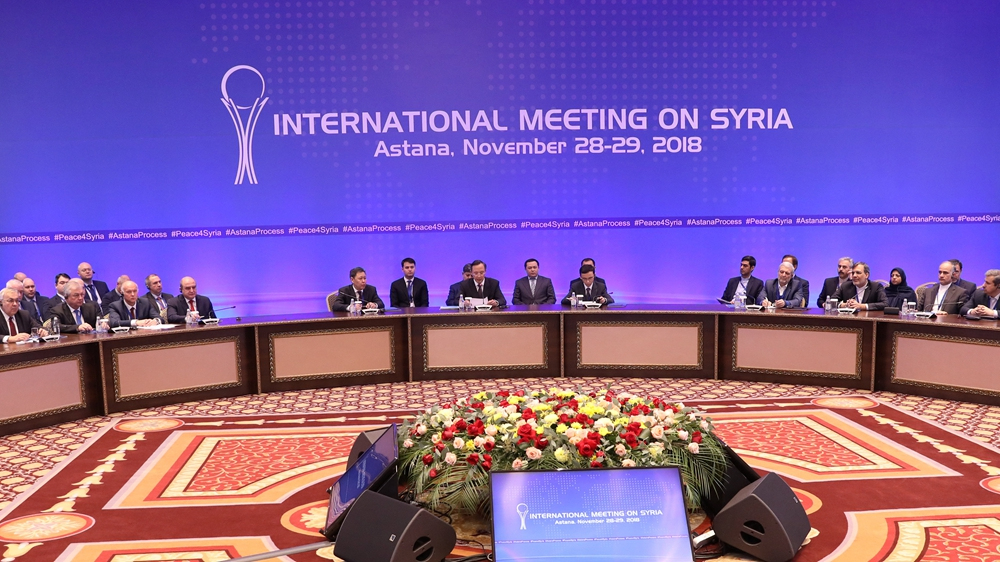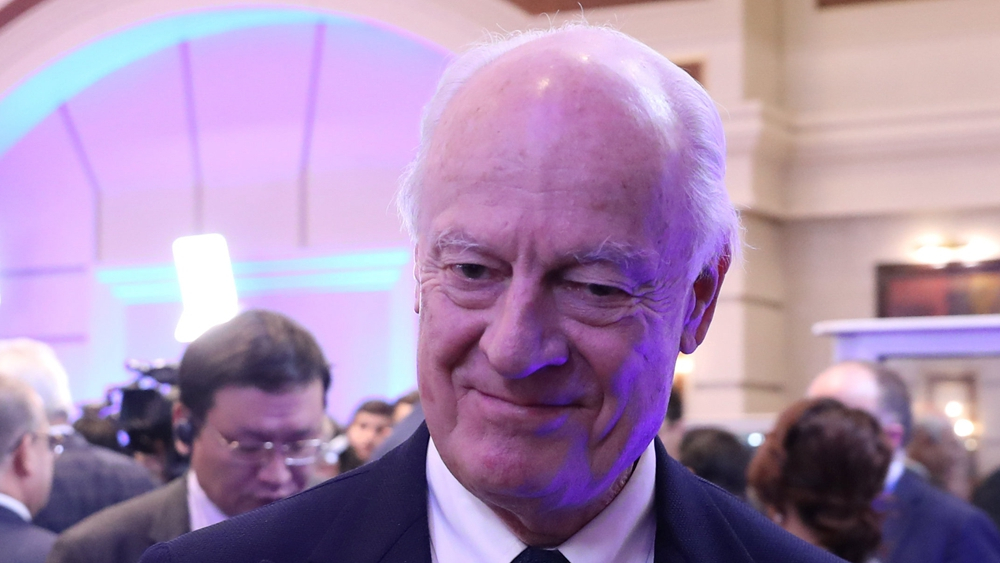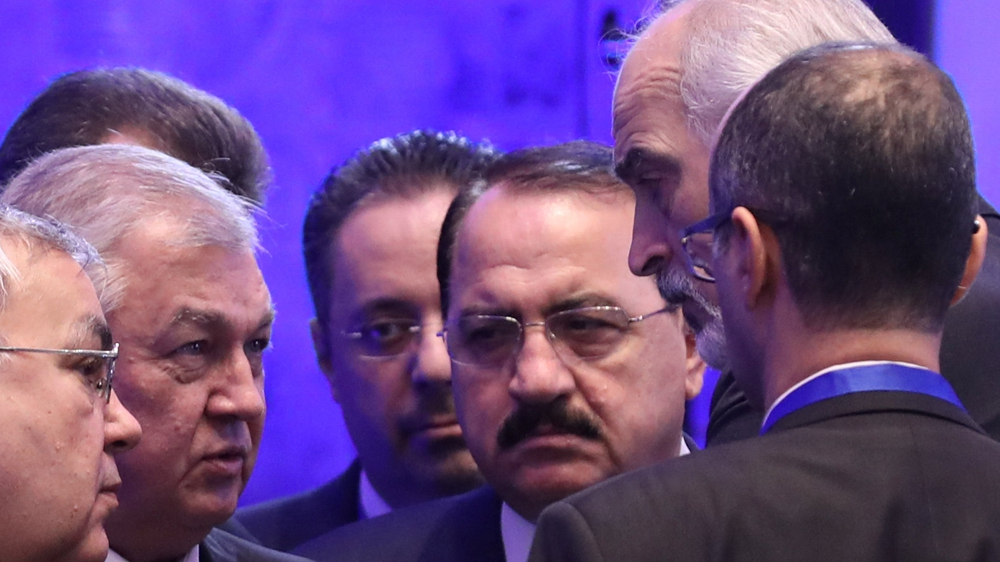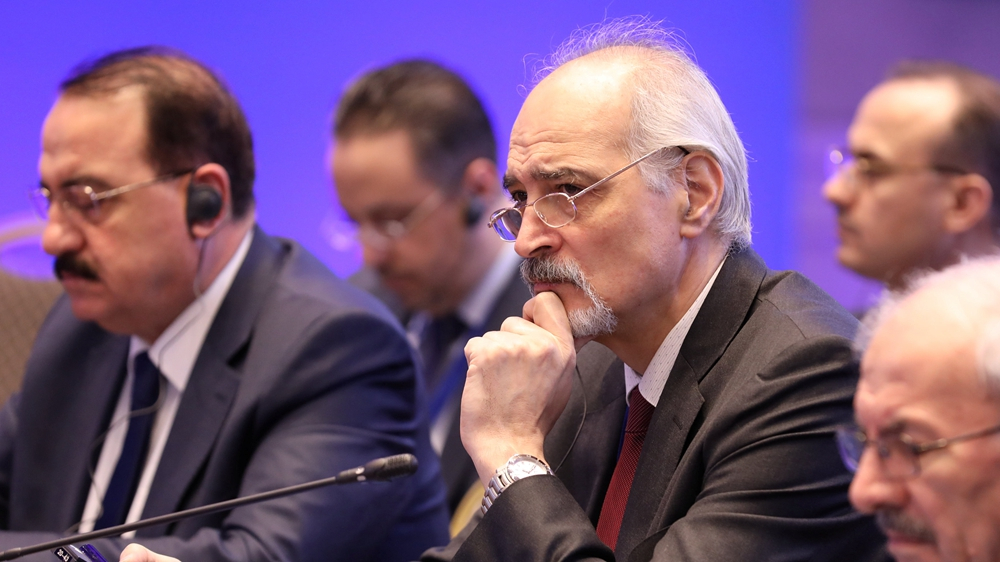
World
13:56, 01-Dec-2018
11th round of Astana peace talks: A missed opportunity
Updated
13:04, 04-Dec-2018
By Michal Bardavid

It's safe to say United Nations (UN) Special Envoy for Syria Steffan de Mistura was hopeful to achieve more than what actually was – at the 11th round of Astana peace talks that took place in Kazakhstan from November 28 to 29.
Aside from the UN, representatives from the Syrian government, the opposition, the three guarantor states Turkey, Iran and Russia were all present for the talks.
But after two days of meetings, the group failed to make progress in what may be one of the most critical issues for the political future of Syria: The establishment of a constitutional committee.
Mistura's office later announced, "there was no tangible progress in overcoming the ten-month stalemate on the composition of the constitutional committee." It also added that the meeting was a "missed opportunity to accelerate the establishment of a credible, balanced and inclusive, Syrian-owned, Syrian-led, UN-facilitated constitutional committee."

Steffan de Mistura, UN Special Envoy for Syria, in Astana /Reuters Photo
Steffan de Mistura, UN Special Envoy for Syria, in Astana /Reuters Photo
In a quartet summit in October between Turkish President Tayyip Erdogan, Russian President Vladimir Putin, German Chancellor Angela Merkel and French President Emmanuel Macron in Istanbul, it was decided that they would target to establish such a committee by the end of the year.
The group had emphasized this would pave the way for fair and transparent elections in post-war Syria. With the Astana talks ending without much success on this topic, it seems unlikely the year-end target could now be met.
One key topic that was also discussed during the talks was maintaining ceasefire in the Idlib province of Syria. Turkey and Russia had agreed on creating a de-militarized zone in the region and for heavy weapons to be withdrawn from the area in October.
Following the Astana talks, the guarantor states stressed their determination to fully implement that agreement for a lasting ceasefire in the area.

Members of the delegations attend a session of Syria peace talks in Astana. /Reuters Photo
Members of the delegations attend a session of Syria peace talks in Astana. /Reuters Photo
In their statement, the participants of the Astana talks also "rejected all attempts to create new realities on the ground under the pretext of combating terrorism." This message especially seemed to refer to Turkey's frustration with the United States' latest moves in Syria.
A few days before the Astana talks, the U.S. announced it would be establishing observation posts in northern Syria in support of the Kurdish Syrian group YPG as they are fighting against ISIL.
However, this is concerning for Turkey as Ankara considers the YPG as a terrorist organization and wants to clear its border areas with Syria of the YPG. The issue remains as a concern for Turkey and a sensitive point for Turkish-U.S. relations.
Another issue that was discussed during the Astana talks was the release of detainees. On November 24, a pilot project was carried out as the Syrian government and opposition groups simultaneously released people they had detained. All groups welcomed this development.

Syria's UN Ambassador Al-Jaafari attends a session of Syria peace talks in Astana. /Reuters Photo
Syria's UN Ambassador Al-Jaafari attends a session of Syria peace talks in Astana. /Reuters Photo
Meanwhile, the U.S., which was absent from the Astana talks, issued a statement following the meeting criticizing Russia and Iran of using "the process to mask the Assad regime's refusal to engage in the political process."
The U.S. State Department also emphasized their continued commitment and support to "advance a Syrian-led and Syrian-owned political process that would create a permanent, peaceful and political end to the conflict."
The 12th round of high level talks on Syria are expected to take place in February 2019 in Astana.

SITEMAP
Copyright © 2018 CGTN. Beijing ICP prepared NO.16065310-3
Copyright © 2018 CGTN. Beijing ICP prepared NO.16065310-3